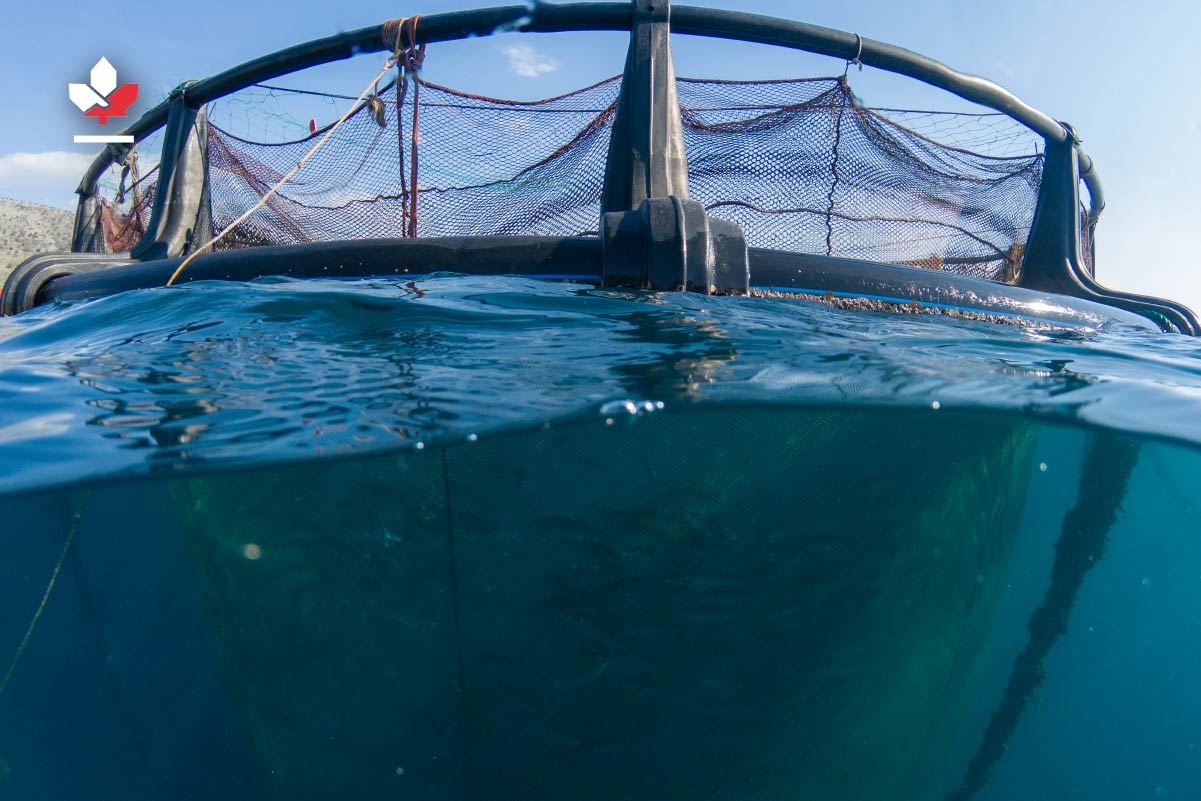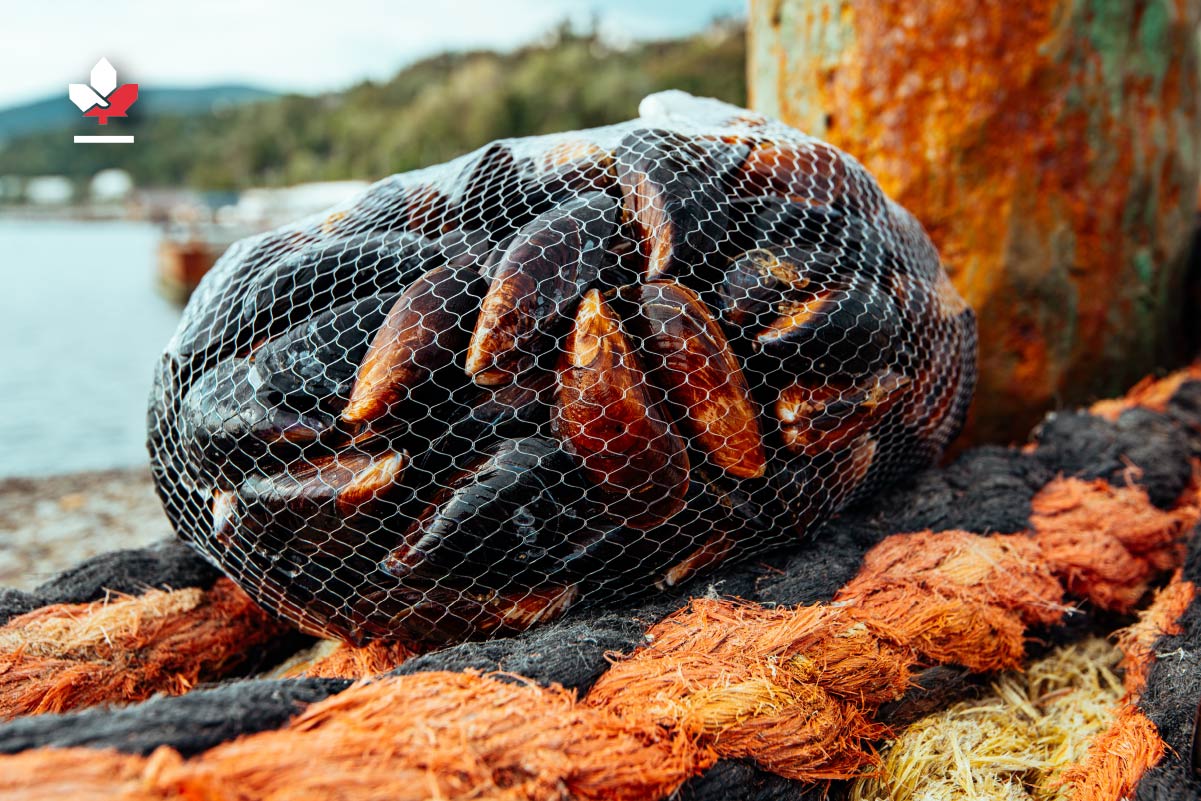Discover the Top Aquaculture Jobs in Canada
May 15, 2024
|
Aquaculture in Canada is rising as the demand for fish as a meat substitute increases. From fish farming to hatchery management and beyond, there are many rewarding aquaculture jobs in Canada for individuals passionate and skilled in seafood production. Whether you are an experienced professional looking for new challenges or a newcomer eager to start your career, our guide will provide valuable insights into aquaculture in Canada.
Get a better understanding of your prospects of finding opportunities among the top aquaculture jobs in Canada.
What Are the Top Aquaculture Sectors in Canada

Canada, with its vast coastlines and abundant freshwater resources, boasts a thriving aquaculture industry. The sectors below have some of the top aquaculture jobs in Canada, contributing significantly to Canada's economy and seafood supply. Here's a closer look at Canada's top five aquaculture sectors.
Salmon Aquaculture
Atlantic salmon is the driver behind one of the leading fishing industries in Canadian aquaculture. Comprising over 70% of production by volume and value, according to the Canadian government, salmon farms are concentrated in net pens along the sheltered Pacific waters of British Columbia and the Atlantic coasts of Nova Scotia and New Brunswick. Strict regulations and adherence to sustainable practices ensure responsible farming of this popular fish.
Trout Farming
Trout farming is another significant aquaculture sector in Canada, especially in provinces like Ontario and Quebec. Rainbow trout and Arctic char are the primary species cultivated in freshwater lakes and rivers. These regions benefit from Canada's abundant freshwater resources, enabling sustainable trout farming practices. The sector provides employment opportunities in rural communities and supports local economies while meeting the growing demand for freshwater fish products.
Mussel Harvesting
Canada is a global leader in mussel aquaculture, boasting the second-largest production by volume. Prince Edward Island leads in cultivating mussels, with significant production also happening in British Columbia and Nova Scotia. These filter feeders contribute to a sustainable and environmentally friendly seafood choice, removing impurities from the water while growing.
Arctic Char Aquaculture
Arctic char aquaculture is a promising sector, particularly in Canada's northern territories like Nunavut and Yukon. This cold-water fish thrives in freshwater environments and offers a delicious, lean, and healthy alternative to other farmed fish. This sector provides employment opportunities in remote communities and supports indigenous livelihoods while promoting sustainable aquaculture practices.
Oyster Cultivation
Oyster cultivation thrives in Canada's coastal areas, with regions like Prince Edward Island renowned for their oyster farms. Canadian oysters are prized for their quality and taste, making them sought after in domestic and international markets. Oyster cultivation contributes to coastal economies, supports sustainable seafood production, and provides employment opportunities in rural communities.
What Are the Top In-demand Jobs in Each Aquaculture Sector in Canada?
Below are tables detailing the top in-demand jobs in each aquaculture sector in Canada, including their National Occupational Classification (NOC) codes and annual average salaries from Canada's Job Bank.
Salmon Aquaculture
Below are the top in-demand jobs in Canada in salmon aquaculture.
| Aquaculture Occupations | NOC Code | Annual Average Salary (CAD) |
|---|---|---|
| Marine Biologist | 21110 | 106,320.63 |
| Seafood Quality Inspector | 22111 | 88,133.66 |
| Aquaculture Manager | 80022 | 78,891.93 |
| Hatchery Manager | 80022 | 65,068.23 |
| Fish Farm Worker | 85102 | 53,665.73 |
Trout Farming
The most in-demand jobs in trout farming in Canada are outlined below.
| Aquaculture Occupations | NOC Code | Annual Average Salary (CAD) |
|---|---|---|
| Fish Farm Supervisor | 80022 | 78,882.09 |
| Fish Processing Supervisor | 92012 | 73,620.55 |
| Aquaculture Technician | 22110 | 71,753.79 |
| Aquaculture Technician Apprentice | 22110 | 71,753.79 |
| Fish Hatchery Worker | 85102 | 53,662.98 |
Mussels Harvesting
In-demand jobs in mussel harvesting in Canada include the following.
| Aquaculture Occupations | NOC Code | Annual Average Salary (CAD) |
|---|---|---|
| Aquatic Biologist | 21110 | 106,317.12 |
| Marine Harvesting Labourer | 85102 | 53,664.35 |
| Aquaculture Worker | 85102 | 53,664.35 |
| Shellfish Cultivator | 95107 | 44,306.03 |
| Seafood Processing Worker | 94142 | 42,522.48 |
Arctic Char Aquaculture
Arctic char aquaculture in Canada has the following in-demand jobs.
| Aquaculture Occupations | NOC Code | Annual Average Salary (CAD) |
|---|---|---|
| Aquaculture Research Scientist | 21110 | 106,317.90 |
| Aquatic Biologist | 21110 | 106,317.12 |
| Fisheries Technician | 22110 | 71,774.59 |
| Aquaculture Technician | 22110 | 71,753.79 |
| Aquaculture Worker | 85102 | 53,660.02 |
Oyster Cultivation
The most in-demand jobs in the oyster cultivation sector in Canada include the following.
| Aquaculture Occupations | NOC Code | Annual Average Salary (CAD) |
|---|---|---|
| Aquatic Biologist | 21110 | 106,317.12 |
| Marine Harvesting Labourer | 85102 | 53,664.35 |
| Aquaculture Worker | 85102 | 53,660.02 |
| Shellfish Cultivator | 95107 | 44,309.29 |
| Seafood Processing Worker | 94142 | 42,529.03 |
How Can I Work in Canada's Aquaculture Industry

There are a few pathways to consider for working in Canada's aquaculture industry, depending on your situation and qualifications. To work in Canada, you will need a Canada work permit.
Canada has two main types of work permits: employer-specific and open work permits. An employer-specific work permit allows you to work for a specific employer under the conditions stated on your permit. In contrast, an open work permit enables you to work for any employer in Canada except for specific ineligible employers. You can obtain a Canada work permit by applying for the following programs.
Temporary Foreign Worker Program (TFWP)
The Temporary Foreign Worker Program (TFWP) allows Canadian employers to hire foreign workers to fill specific labor needs when qualified Canadians are unavailable. To apply to the TFWP, you will need a Canadian aquaculture employer to offer you a job and apply for a Labor Market Impact Assessment (LMIA) through Employment and Social Development Canada (ESDC).
The LMIA proves they tried recruiting Canadians first and that hiring you will not negatively affect the Canadian labor market. Once the employer receives a positive LMIA, they can help you apply for a work permit specific to the job offer.
Learn more about how to get a work permit in Canada.
International Mobility Program (IMP)
The International Mobility Program (IMP) offers various streams for temporary work in Canada, with some specifically targeting young professionals or recent graduates. Here are two relevant Canada work permit streams you can use to work in Canada's aquaculture industry.
Working Holiday Visa
The Canada Working Holiday Visa allows youth from over 30 countries to legally live, travel, and work in Canada for up to 2 years. As an 18 to 35-year-old citizen of one of the 35 countries with an international mobility agreement with Canada, you can apply for a Working Holiday Visa to gain experience in the aquaculture industry for up to two years.
Learn what you should know about the Canada Working Holiday Visa.
Postgraduate Work Permit
If you complete a full-time postgraduate program (master's or Ph.D.) at a designated learning institution (DLI) in Canada, you might be eligible for a Postgraduate Work Permit (PGWP). A PGWP allows you to gain valuable Canadian work experience in aquaculture-related jobs up to three years after graduation. This could lead to permanent job opportunities for those with experience that can contribute to eligibility for permanent residency programs in Canada.
What Are the Benefits of Working in Canada?
Canada's strong economy, stunning landscapes, and welcoming society contribute to Canada's appeal for immigrants looking for a fulfilling work experience. Here is a closer look at the top benefits of living and working in Canada.
Economic Stability and Job Opportunities
Canada boasts a robust and diversified economy, offering various job opportunities across various sectors. Canada presents a dynamic job market for skilled workers, from established industries like natural resources and technology to flourishing fields like healthcare and renewable energy.
Learn more about the fastest-growing industries for newcomers to Canada.
Competitive Salaries and Job Security
Canadian salaries are generally competitive globally, particularly in specific high-demand fields like technology, engineering, and healthcare. Furthermore, strong labor laws ensure minimum wage standards and fair treatment for employees. Employment Insurance (EI) provides financial support for eligible workers who lose their jobs through no fault, offering safety through unemployment benefits accessed via a Social Insurance Number.
Learn more through the secret to Canada's low unemployment rate.
Legislated Employee Benefits
Canada stands out for its generous and legislated employee benefits. Unlike many countries where benefits depend on employer offerings, Canadian workers are entitled by law to various benefits, including:
- Paid vacation time: Minimum of two weeks of paid vacation after one year of employment,
- Parental leave: Generous parental leave programs offer extended time off for new parents, with job security upon return,
- Statutory holidays: Paid days off for national holidays, and
- Health insurance: Access to high-quality public healthcare through universal healthcare programs eliminates dependence on employer-sponsored health insurance.
Path to Permanent Residency and Citizenship
Working in Canada can be a stepping stone to permanent residency and citizenship. Several immigration programs prioritize skilled workers and offer pathways to permanent residency based on work experience and qualifications. Canadian citizenship grants numerous benefits, including the right to vote, access to social programs, and the ability to sponsor family members for immigration.
Learn how to become a Canadian citizen.
Diverse and Multicultural Environment
Canada is a vibrant multicultural society, welcoming people from all walks of life. This diversity creates a sense of inclusion and acceptance, making it easier for newcomers to integrate and feel at home. Multiculturalism is a valued part of Canadian values, focusing on celebrating different cultures and traditions.
FAQs

How Can I Find Aquaculture Job Opportunities in Canada?
To find aquaculture job opportunities in Canada, you can explore online job boards, industry-specific websites, and government job portals like Canada's Job Bank. Networking with professionals in the aquaculture industry and attending industry events can also help you discover potential job openings.
Are Aquaculture Jobs in Canada Suitable For Beginners or Entry-level Candidates?
Aquaculture jobs in Canada are suitable for beginners and entry-level candidates, as many positions offer on-the-job training and opportunities for career advancement. Whether you are interested in fish farming, hatchery management, or seafood processing, entry-level roles are available in various aquaculture sectors.
What Qualifications or Skills Are Required For Aquaculture Jobs in Canada?
Qualifications and skills required for aquaculture jobs in Canada vary depending on the specific role. Common requirements may include a relevant degree or diploma in aquaculture, fisheries, biology, or related fields. Practical experience and knowledge of aquatic biology, water quality management, and aquaculture techniques are valuable assets in this field.
